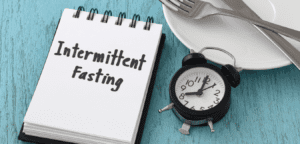Do Nootropics Break a Fast?
Most types of "smart drugs" – common nootropic substances – do not break a fast. Cognitive enhancers typically cannot break a fast because they do not metabolize into real "food" in the body. For instance, caffeine from coffee cannot break a fast because it does not contain calories and cannot be metabolized to yield energy (or other nutrients).
In this article, I'll go over the most commonly asked questions which nootropics users have about fasting.
So without further ado, let's just get straight into it, shall we?
Fasting: What's the Deal?
When it comes to fasting, there are different types.
One type is "intermittent fasting" (IF), which involves eating within an 8 to 12 hour period and fasting for the other 16 to 12 hours.
Then there are "water fasts" and "juice fasts", which both involve consuming nothing but water or juice for a set period of time.
And finally, there's "complete fasting", which is when you consume zero calories for an extended period of time (usually 7 days or more).
Now that we've got that out of the way, let's move on to nootropics and fasting.
Can Nootropics Break a Fast?


The short answer is no, nootropics typically cannot break a fast.
This is because most nootropic substances do not contain any calories and are not metabolized into real food in the body.
If you're taking a supplement that claims it can break a fast or help with fasting, then that's probably false advertising.
On the other hand, just because most nootropics are calorie-free doesn't mean they do not have an effect on your brain.
For instance, piracetam has been shown to increase glucose uptake in parts of the brain where blood flow is typically lower in elderly people.
And some nootropic stacks claim they contain "nutrients" in micrograms or milligrams, but in reality, these nutrients are only included for marketing purposes and lack any significant effect when taken orally.
So Can Nootropics Be Used During Fasting?
Yes! Most nootropics are perfectly safe to take while fasting because they don't break a fast.
And if you want to, some nootropics can actually improve your concentration and focus while you're fasting.
I've experimented with this quite a bit myself, but I'm pretty sure it has more to do with my mindset than anything else.
If you believe that the nootropic is doing something for you, then there's obviously going to be an effect – whether or not it's placebo or not doesn't matter because the end result is still the same!
So the bottom line is this: don't worry about breaking your fast when taking most nootropics.
How Can Nootropics Help Fasting?
As I've mentioned earlier, fasting can cause poor concentration and focus.
This isn't because your body is lacking energy – it's usually because your body is switching to fats as its primary source of energy.
In the absence of glucose, your brain will use ketones as a substitute source of energy.
Ketones are produced when your body breaks down fatty acids for energy, and they're a much more efficient source of energy for the brain than glucose.
This is why people often experience better concentration and focus when they're in ketosis.
If you want to avoid the negative side effects of fasting, then you can take nootropics and electrolytes to help your body make the switch to ketones and avoid any negative symptoms.
Some popular nootropics that can help while you fast:
- Caffeine
- Piracetam
- Noopept
- L-Theanine
- Huperzine A
